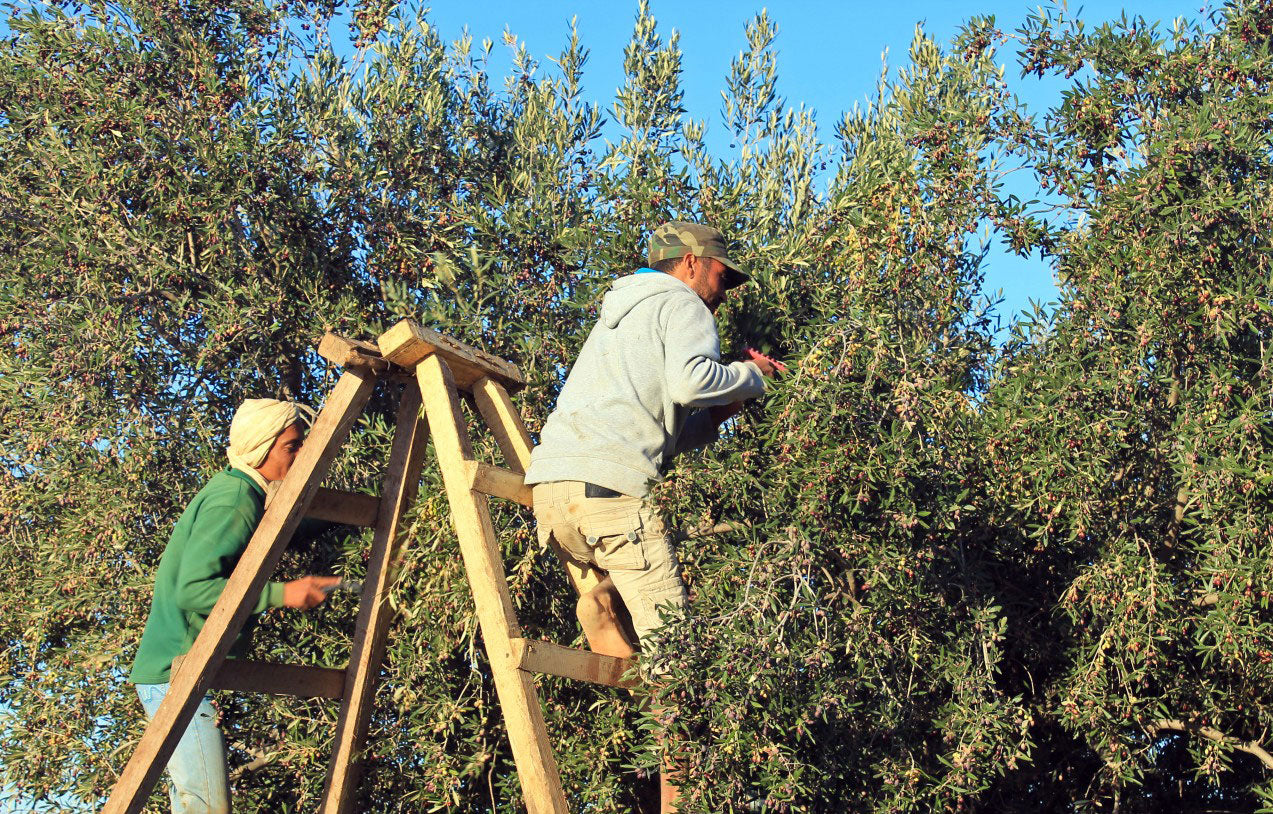Our Olive Oil
Olive oil production is deeply rooted in Tunisian heritage and today Tunisia is the largest producer of organic extra virgin olive oil globally. Thanks to an ideal growing climate and soil conditions, the oils produced are very high quality and have a delicious rich, fruity flavour. Historically most of the oil has been absorbed into the large-scale production of lower quality blended oils, and has not received the recognition it deserves – we are seeking to change this.


We strive for unmatched quality
The Ellouze family has been growing olives on the sunny Mediterranean coast of Tunisia since 1870, when Hassan Ellouze, the great great grandfather of the current owners, first established his olive groves there. We are devoted to producing exceptional quality organic olive oil. With over a century of experience, we use our extensive knowledge of the different varieties of olive to create olive oil that stands out – both for its flavour as well as for its nutritional qualities.

Our brand is rooted in sustainability
Because we farm and mill our own olives, we own our supply chain. We are committed not only to producing premium quality olive oil but also to ensuring that the production remains sustainable for future generations. We marry traditional farming practices, such as the hand-picking of olives, with modern technologies, such as solar-powered irrigation and processing waste products into bio-fuel which is used to power the mill. We seek to minimise the use of plastics in our packaging and we offer refill bags so that bottles can be reused.
Our Values
-

Exceptional quality organic olive oil
Our olives are grown and processed using the highest standards of organic farming practices. They are carefully hand-picked andimmediately pressedin order toretain their distinctive flavour and beneficial nutritional qualities.
-

Family grown and milled on site
The Ellouze family has been cultivating olives for over 150 years. Every step of the process, from nurturing the trees and harvesting the fruit to pressing and bottling, is carried out with utmost care.
-

Sustainable production
Sustainability and environmental preservation are key principles that define our brand. We combine traditional agricultural techniques with innovative technologies to mitigate our ecological footprint.
-

Community Focus
We believe that supporting the local community is key to creating a truly sustainable business. The Ellouze family has always been at the heart of the community, and has provided key infrastructure including the local school. Today, we still sponsor the school, we employ local workers and weprovide resources to local farmers who do not have the scale to mill their own olives.




